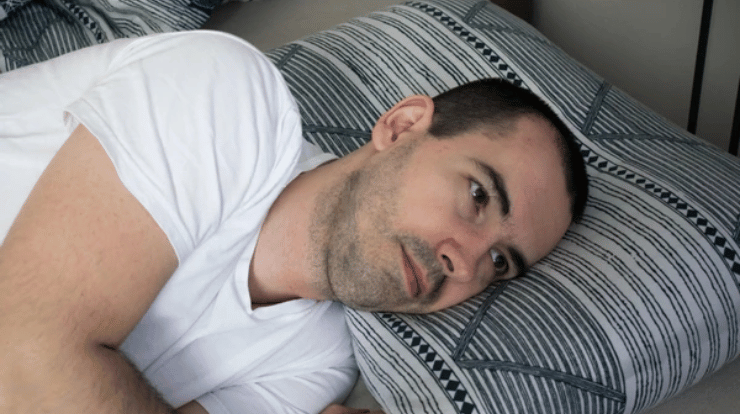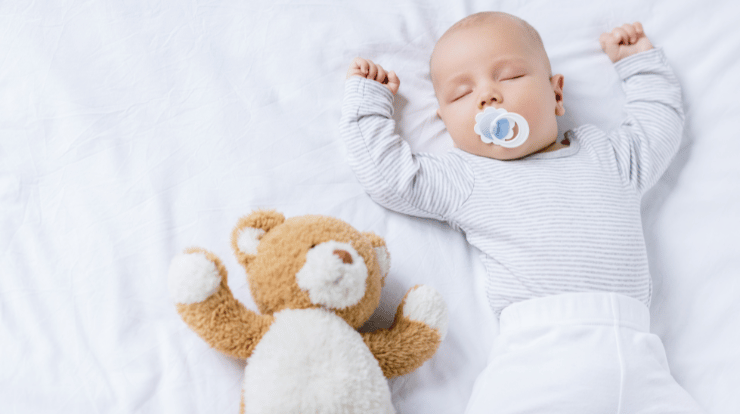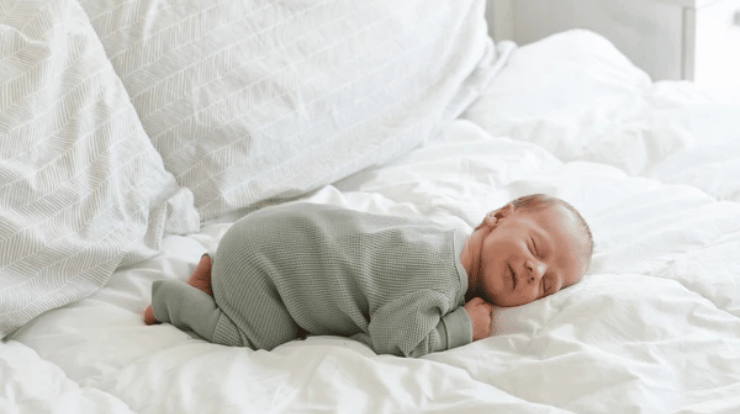
Many people have a question that is it bad to sleep with wet hair? Sleeping with wet hair is a common habit for many people, but it can have negative effects on the health of your hair and scalp. While it may seem like a convenient way to save time in the morning, wet hair can lead to breakage, frizz, and other damage.
In addition, it can also promote the growth of bacteria and fungi on your scalp, leading to itching, irritation, and other health problems. So, if you’re wondering whether it’s bad to sleep with wet hair, the answer is yes. Read on to learn more about the dangers of sleeping with wet hair and what you can do to protect your hair and scalp while you sleep.
Is it Bad to Sleep With Wet Hair?
Yes, it is generally not recommended to sleep with wet hair. When you sleep with wet hair, the hair shafts can become weak and prone to breakage. The moisture in wet hair can also cause the scalp to become irritated and itchy and can lead to the growth of bacteria and fungi, which can cause infections.
Reasons Why You Should NEVER Sleep with Wet Hair
1. Increased risk of breakage:
When you sleep with wet hair, the hair shafts are more fragile and prone to breakage. This can lead to split ends and damaged hair, making it more difficult to style and maintain healthy-looking locks.
2. Itchy and irritated scalp:
The moisture from wet hair can lead to an itchy and irritated scalp. This can cause discomfort, redness, and even infections if left untreated.
3. Growth of bacteria and fungi:
Moisture from wet hair can provide an ideal environment for the growth of bacteria and fungi, which can cause scalp infections, dandruff, and other conditions.
4. Disrupted sleep:
Wet hair can make it more difficult to achieve a comfortable sleeping temperature, as wet hair can feel cold and clammy. This can lead to disrupted sleep and leave you feeling tired and groggy in the morning.
5. Flat, lifeless hair:
Wet hair can be heavy and flat, and can lose volume and body overnight. This can make your hair look limp and lifeless, and can make it more difficult to style in the morning.
6. Increased frizz:
Wet hair is more likely to become frizzy, especially if you have curly or kinky hair. This can make your hair difficult to style and can leave it looking unkempt and frizzy in the morning.

7. Tangled hair:
Wet hair is more prone to tangles and knots, which can lead to breakage and make your hair difficult to comb or brush in the morning.
8. Dull and lifeless hair:
Wet hair can lose shine and luster, especially if you use hot tools or chemical treatments on a regular basis. This can make your hair look dull and lifeless, and can make it more difficult to style.
9. Increased static:
Wet hair can generate static electricity, which can make your hair flyaway and frizzy, and can make it more difficult to style.
10. Uncomfortable sleeping experience:
Wet hair can be cold and clammy, and can make it more difficult to achieve a comfortable sleeping temperature. This can lead to disrupted sleep and leave you feeling tired and groggy in the morning.
How to sleep with wet hair?
Sleeping with wet hair can be a tricky situation as it may lead to a range of negative effects on your hair and scalp health. However, with the right techniques and products, it’s possible to minimize damage and ensure that your hair stays healthy and looks its best. Whether you’re trying to reduce breakage, prevent frizz, or just achieve a comfortable sleeping temperature, there are several tips and tricks you can use to make the most of your wet hair and get a good night’s sleep.
Tips for Sleeping with Wet Hair
1. Use a gentle towel to dry your hair:
Before going to bed, gently blot your hair with a towel to remove excess moisture. Be sure to use a gentle touch, as rubbing your hair vigorously can cause damage and lead to breakage.
2. Use a leave-in conditioner:
A leave-in conditioner can help protect your hair from damage and prevent frizz. Apply a small amount of product to your hair and comb it through to distribute it evenly.

3. Braid your hair:
Braiding your hair before bed can help reduce frizz and minimize damage from tossing and turning. A loose braid will also help you achieve a more defined wave or curl in the morning.
4. Use a silk pillowcase:
Sleeping on a silk pillowcase can help reduce friction and prevent breakage, as silk is gentler on your hair than cotton. Silk pillowcases can also help reduce frizz and keep your hair smooth.

5. Sleep with your hair up:
If you have long hair, try sleeping with your hair in a loose bun or ponytail. This can help reduce tangling and minimize friction, which can cause breakage.
6. Use a hair wrap:
If you’re worried about your hair getting tangled or dampening your pillow, consider using a soft hair wrap or cap to keep your hair contained and protected while you sleep.
7. Invest in a volumizing product:
If you’re concerned about your hair looking flat in the morning, consider using a volumizing product before bed. A volumizing mousse or powder can help add volume to your roots and keep your hair looking full and voluminous
8. Consider a sleeping cap:
If you live in a cold climate, consider using a warm sleeping cap to keep your head and hair protected while you sleep. This can help keep your hair dry and minimize frizz.

Does sleeping with wet hair make you sick?
There is no direct link between sleeping with wet hair and getting sick. However, sleeping with wet hair in a damp and humid environment can increase your risk of developing a fungal or bacterial infection, such as an athlete’s foot or ringworm.
These infections can spread from your scalp to other parts of your body, causing symptoms such as itching, redness, and scaling. Additionally, sleeping with wet hair in a cold environment can increase your risk of developing a cold or flu, as a chill can weaken your immune system and make you more susceptible to illness. To reduce your risk of getting sick, it’s best to avoid sleeping with wet hair and to keep your sleeping environment dry, warm, and well-ventilated.
Does sleeping with wet hair cause hair loss?
Sleeping with wet hair alone is not a direct cause of hair loss, but it can contribute to hair damage that may lead to hair loss over time. Wet hair is more susceptible to breakage and tangling, which can cause strands of hair to be pulled out or damaged at the roots.






